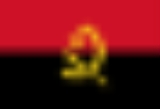
People's Republic of Angola
Encyclopedia
The People's Republic of Angola was a self-declared socialist state
(commonly known as a "communist state
" in the West) that was established in 1975 after it was granted independence from Portugal
, akin to the situation in Mozambique
. The newly-founded nation enjoyed friendly relations with the Soviet Union
, Cuba
, and the People's Republic of Mozambique
. The country was governed by the Popular Movement for the Liberation of Angola
(MPLA), which was responsible for its adoption of communism
. The group was backed by both Cuba
and the Soviet Union
. An opposing group, known as the National Union for the Total Independence of Angola, sparked a civil war
with the MPLA, with the backing from both South Africa
and the United States
.
In 1991, the MPLA and UNITA signed a peace agreement
, which would allow for multiparty elections in Angola. Though harsh disputes still followed, the People's Republic of Angola was finally dismantled in 1991, becoming the present day Republic of Angola
.
Socialist state
A socialist state generally refers to any state constitutionally dedicated to the construction of a socialist society. It is closely related to the political strategy of "state socialism", a set of ideologies and policies that believe a socialist economy can be established through government...
(commonly known as a "communist state
Communist state
A communist state is a state with a form of government characterized by single-party rule or dominant-party rule of a communist party and a professed allegiance to a Leninist or Marxist-Leninist communist ideology as the guiding principle of the state...
" in the West) that was established in 1975 after it was granted independence from Portugal
Portugal
Portugal , officially the Portuguese Republic is a country situated in southwestern Europe on the Iberian Peninsula. Portugal is the westernmost country of Europe, and is bordered by the Atlantic Ocean to the West and South and by Spain to the North and East. The Atlantic archipelagos of the...
, akin to the situation in Mozambique
People's Republic of Mozambique
The People's Republic of Mozambique , was a self-declared socialist state that lasted from June 25, 1975 through December 1, 1990, becoming the present day Republic of Mozambique.After gaining independence from Portugal in 1975, the People's Republic of Mozambique was established shortly...
. The newly-founded nation enjoyed friendly relations with the Soviet Union
Soviet Union
The Soviet Union , officially the Union of Soviet Socialist Republics , was a constitutionally socialist state that existed in Eurasia between 1922 and 1991....
, Cuba
Cuba
The Republic of Cuba is an island nation in the Caribbean. The nation of Cuba consists of the main island of Cuba, the Isla de la Juventud, and several archipelagos. Havana is the largest city in Cuba and the country's capital. Santiago de Cuba is the second largest city...
, and the People's Republic of Mozambique
People's Republic of Mozambique
The People's Republic of Mozambique , was a self-declared socialist state that lasted from June 25, 1975 through December 1, 1990, becoming the present day Republic of Mozambique.After gaining independence from Portugal in 1975, the People's Republic of Mozambique was established shortly...
. The country was governed by the Popular Movement for the Liberation of Angola
Popular Movement for the Liberation of Angola
The People's Movement for the Liberation of Angola - Labour Party is a political party that has ruled Angola since the country's independence from Portugal in 1975...
(MPLA), which was responsible for its adoption of communism
Communism
Communism is a social, political and economic ideology that aims at the establishment of a classless, moneyless, revolutionary and stateless socialist society structured upon common ownership of the means of production...
. The group was backed by both Cuba
Cuba
The Republic of Cuba is an island nation in the Caribbean. The nation of Cuba consists of the main island of Cuba, the Isla de la Juventud, and several archipelagos. Havana is the largest city in Cuba and the country's capital. Santiago de Cuba is the second largest city...
and the Soviet Union
Soviet Union
The Soviet Union , officially the Union of Soviet Socialist Republics , was a constitutionally socialist state that existed in Eurasia between 1922 and 1991....
. An opposing group, known as the National Union for the Total Independence of Angola, sparked a civil war
Angolan Civil War
The Angolan Civil War was a major civil conflict in the Southern African state of Angola, beginning in 1975 and continuing, with some interludes, until 2002. The war began immediately after Angola became independent from Portugal in November 1975. Prior to this, a decolonisation conflict had taken...
with the MPLA, with the backing from both South Africa
South Africa
The Republic of South Africa is a country in southern Africa. Located at the southern tip of Africa, it is divided into nine provinces, with of coastline on the Atlantic and Indian oceans...
and the United States
United States
The United States of America is a federal constitutional republic comprising fifty states and a federal district...
.
In 1991, the MPLA and UNITA signed a peace agreement
Bicesse Accords
The Bicesse Accords, also known as the Estoril Accords, laid out a transition to multi-party democracy in Angola under the supervision of the United Nations' UNAVEM II mission. President José Eduardo dos Santos of the MPLA and Jonas Savimbi of UNITA signed the accord in Lisbon, Portugal on May 31,...
, which would allow for multiparty elections in Angola. Though harsh disputes still followed, the People's Republic of Angola was finally dismantled in 1991, becoming the present day Republic of Angola
Angola
Angola, officially the Republic of Angola , is a country in south-central Africa bordered by Namibia on the south, the Democratic Republic of the Congo on the north, and Zambia on the east; its west coast is on the Atlantic Ocean with Luanda as its capital city...
.

